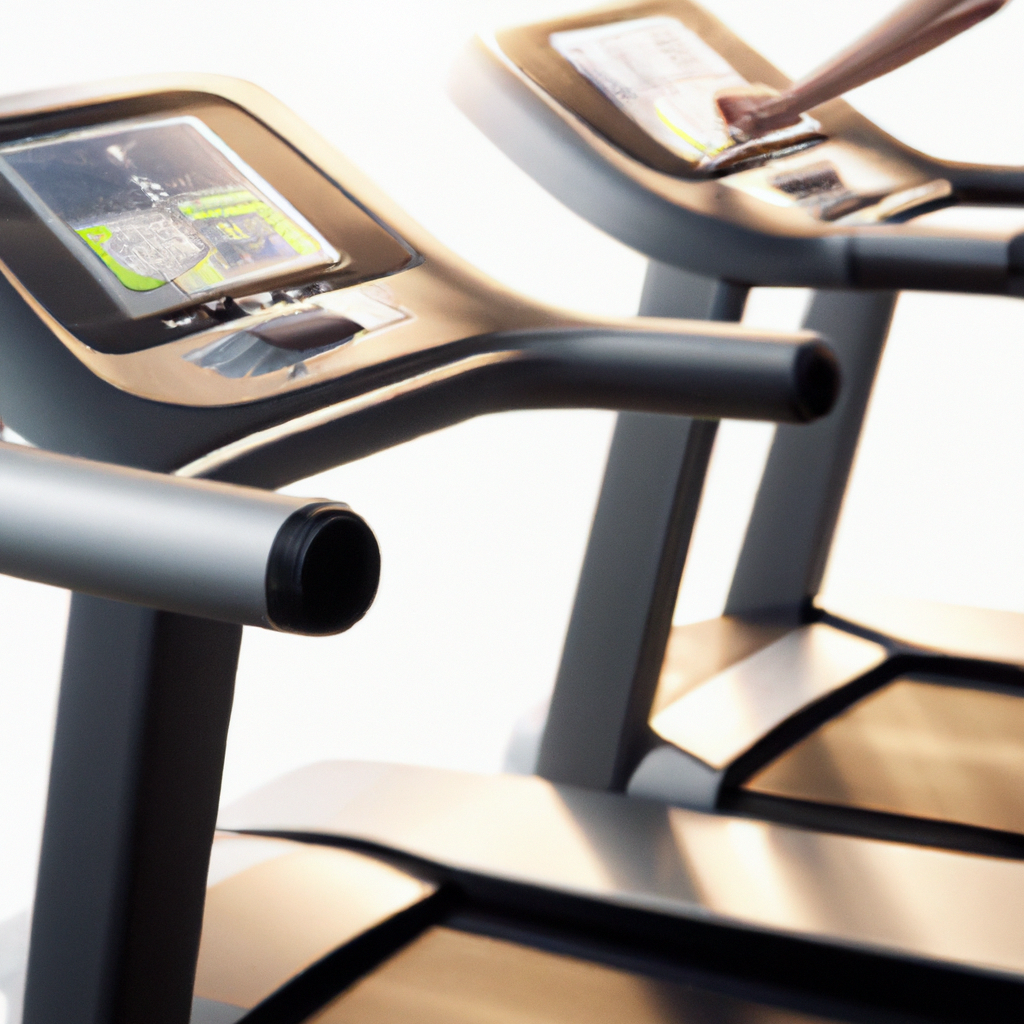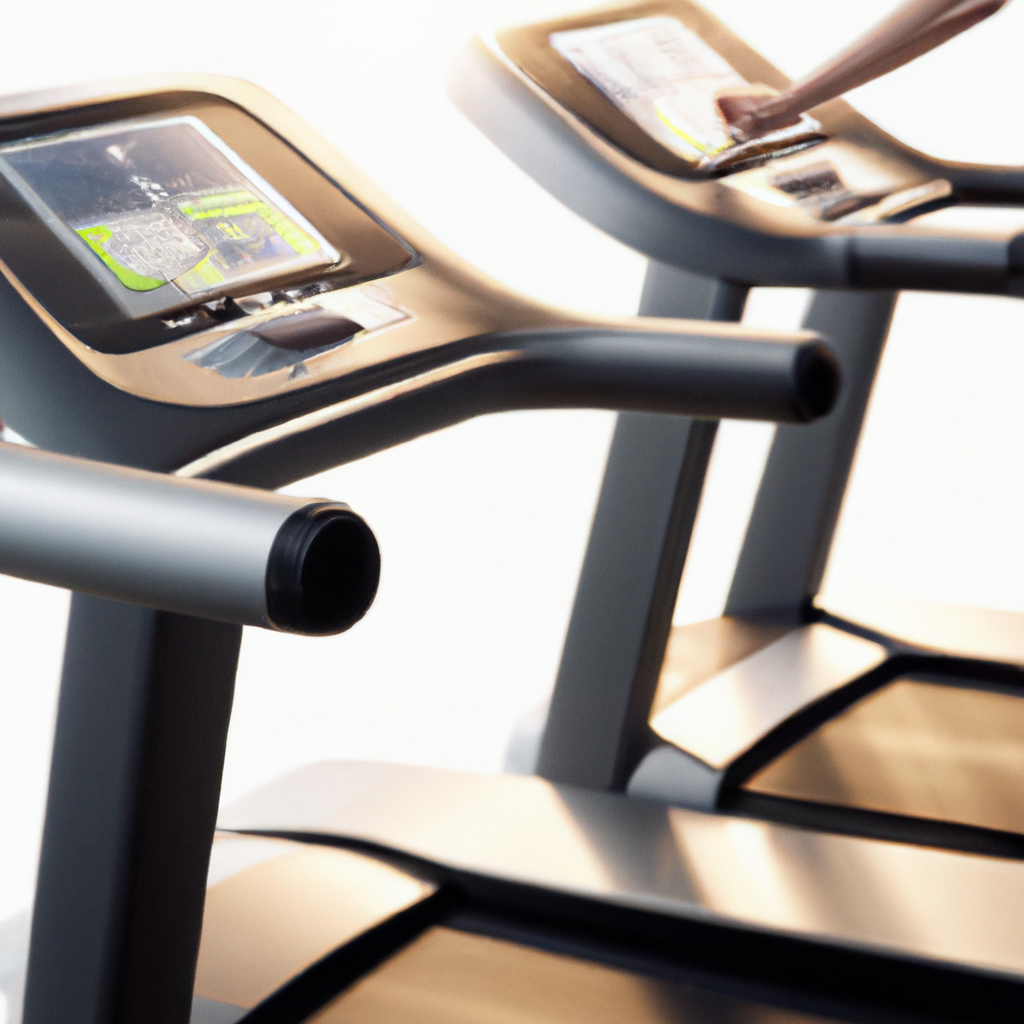You’re eager to spice up your workout routine, and what better way to do it than with cardio equipment? Whether you’re a beginner or a fitness enthusiast, you probably have some burning questions about these machines. How long should you be spending on them? What are the benefits? How do you even choose the right one? Don’t worry, we’ve got you covered. In this article, we will answer all your frequently asked questions about cardio equipment, giving you the knowledge and guidance to make the most out of your cardio workouts.

How long should you use cardio equipment?
When it comes to using cardio equipment, the duration varies depending on your fitness level and goals. It is recommended to start with shorter sessions and gradually increase the duration as you build endurance and cardiovascular fitness. For beginners, aim for 20-30 minutes of cardio exercise, three to four times a week. As you become more comfortable and fit, you can increase the duration to 45-60 minutes per session. However, it’s important to listen to your body and not overexert yourself. If you feel fatigued or experience any pain, it’s essential to take rest and allow your body to recover.
What are the benefits of cardio equipment?
Cardio equipment, such as treadmills, stationary bikes, ellipticals, and rowing machines, offer numerous benefits for your overall health and well-being. Regular use of cardio equipment can improve cardiovascular fitness, strengthen your heart and lungs, and enhance blood circulation. It also aids in weight management by burning calories and promoting fat loss. Additionally, cardio exercises can boost your mood, reduce stress levels, and improve mental clarity. It’s a great way to elevate your energy levels and improve overall stamina.
How do I choose cardio equipment?
Choosing the right cardio equipment largely depends on your personal preferences, fitness goals, and any specific health considerations. Start by considering the type of exercise you enjoy the most. If you prefer walking or running, a treadmill would be a suitable choice. If low-impact workouts appeal to you, an elliptical or stationary bike can be a better option. Assess your available space at home or in the gym to determine the equipment’s size and portability. It’s also essential to consider your budget and look for a quality machine that offers the features you need for a fulfilling workout experience.
What should we do before we use cardio machines?
Before hopping on a cardio machine, it’s crucial to properly prepare your body for the exercise and reduce the risk of injury. Start by performing a quick warm-up to increase your heart rate and loosen up your muscles. You can engage in dynamic stretches or perform light aerobic exercises like brisk walking or jogging for a few minutes. Next, ensure you are wearing appropriate workout attire and supportive shoes to protect your body and provide comfort. It’s also advisable to have a water bottle nearby to stay hydrated throughout your workout session.

How often should cardio exercises be performed?
The frequency of cardio exercises largely depends on your fitness goals, current fitness level, and overall health. For general cardiovascular health and maintenance, it is recommended to engage in moderate-intensity cardio exercises for at least 150 minutes per week. This can be divided into 30 minutes of exercise on most days of the week. If weight loss is your goal, increasing the duration or intensity of cardio exercise may be necessary. It’s essential to find a balance that works for you and fits into your lifestyle.
How often do you need to do cardio to maintain?
To maintain cardiovascular fitness, it’s important to engage in regular cardio exercises. Aim for at least three to four sessions per week, each lasting for a minimum of 20-30 minutes. This frequency helps to keep your heart and lungs strong, maintain endurance, and regulate blood pressure. By consistently incorporating cardio workouts into your routine, you will ensure that your cardiovascular system stays in good shape and continue to enjoy the associated health benefits.

What are the disadvantages of cardio machines?
While cardio machines offer numerous benefits, it’s essential to be aware of their potential disadvantages. One disadvantage is the repetitive nature of some exercises, which can lead to overuse injuries if proper form and technique are not maintained. Additionally, relying solely on cardio machines for exercise may neglect other components of fitness, such as strength training and flexibility. It’s important to have a well-rounded fitness routine that incorporates various types of exercises to avoid imbalances and achieve optimal results.
How is cardio effective?
Cardio exercises are highly effective in improving cardiovascular fitness and overall health. These exercises elevate your heart rate, increasing blood flow and the delivery of oxygen to your muscles. Over time, this enhances your heart’s efficiency, strengthens your cardiovascular system, and improves lung function. Regular cardio workouts also help to reduce the risk of chronic diseases, such as heart disease, type 2 diabetes, and certain types of cancer. Additionally, cardio exercises can contribute to weight loss by burning calories and boosting metabolism.

What is the main purpose of cardio exercise?
The main purpose of cardio exercise, also known as aerobic exercise, is to improve and maintain cardiovascular fitness. This type of exercise focuses on increasing your heart rate and sustained physical activity to challenge your cardiovascular system. By engaging in regular cardio workouts, you can strengthen your heart, improve lung capacity, and enhance oxygen uptake by the muscles. Cardio exercises also aid in weight management, improve mood and mental well-being, and promote overall health. Whether you choose to run, cycle, swim, or use cardio equipment, the main goal is to elevate your heart rate and challenge your cardiovascular system for improved fitness.


